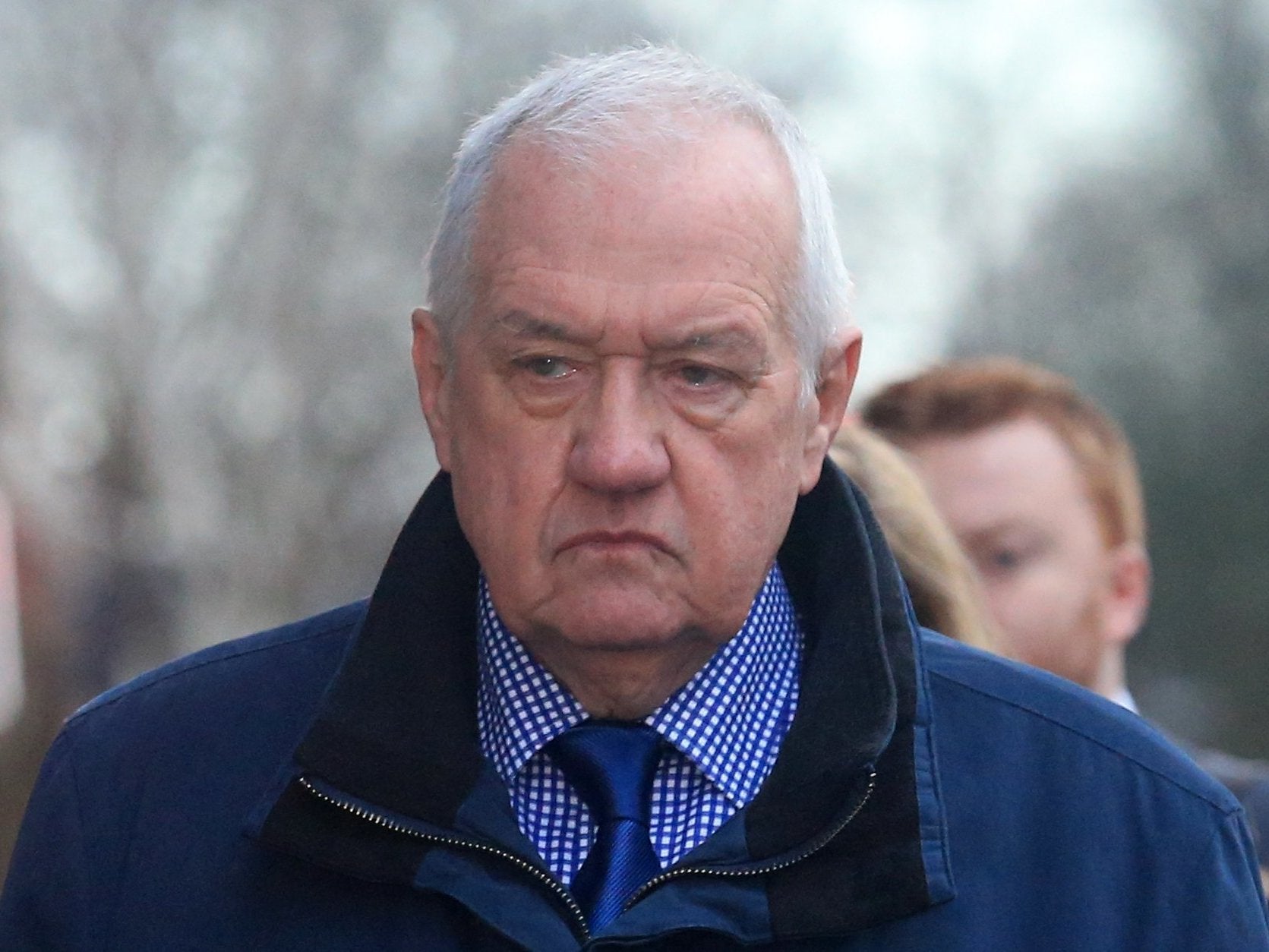Hillsborough trial: David Duckenfield's policing operation 'chaos' compared to same match played year before, court hears
Fan who attended Liverpool v Nottingham Forest tie in 1988 and 1989 says policing at each match was ‘hugely different’
David Duckenfield’s policing operation at Hillsborough was “chaos” compared to an identical match played a year before, a court has heard.
Preston Crown Court heard that the 1988 FA Cup semi-final was also played between Liverpool and Nottingham Forest at Hillsborough, with fans allocated the same parts of the stadium in Sheffield.
The jury was told that when the standing pens where the fatal crush would happen a year later became overcrowded, police stopped more fans entering them and opened gates to let people out.
But in 1989, witnesses said Liverpool fans were allowed to flow down a sloping tunnel into the pens that remained shut as 96 victims were crushed to death.
Mr Duckenfield had been named match commander three weeks before the game and was tasked with ensuring fans entered Hillsborough stadium safety, prosecutors said.
Richard Matthews QC previously told the jury that his “extraordinarily bad failings” led to the disaster, but he has denied manslaughter.
Giving evidence on Monday, a Liverpool fan said the policing of the 1989 match under Mr Duckenfield was “hugely different” to the year before, under his predecessor.
David Essery said that in 1988 police officers had lined a road leading to the Leppings Lane turnstiles to check tickets and direct spectators to “orderly queues” at the correct entrance, but they were not there in 1989.
On 15 April that year, he told the court he saw a “mass of people” and added: “I knew where I was going because of the previous year but I had to force my way over.
“When I got through the turnstiles I do recall people going over the top of the turnstiles, climbing over.
“I recall a police officer saying ‘show your ticket and come over the top, climb over the top’ because of the numbers of people who couldn’t get through. It was chaotic really.”
The court previously heard that police officers’ concerns over a crush outside the turnstiles caused Mr Duckenfield to order the opening of a large exit gate.
Thousands of fans poured through within minutes, with many flooding straight into the tunnel directly ahead that led to the fenced pens where the disaster unfolded.
Mr Essery said that from his seat in the West Stand he could see the central terrace was “very full” by kick-off, with people climbing fences into neighbouring pens and being lifted out to the stand above.
“I saw one police officer punching the spikes at the top of the perimeter fence, trying to punch them flat because people were getting stuck on the spikes,” he told the jury.
When asked how the police operation differed between 1988 and 1989, Mr Essery said it was “hugely different”.
William Crawford, a police sergeant who was in charge of a group of police officers at the Leppings Lane end in both 1988 and 1989, told the court there was a “complete lack of manpower“ on the day of the disaster.
“It was more organised in ‘88,” he added. “The problem in ‘89 was I don’t think the commander [Mr Duckenfield] was experienced enough on that particular day to deal with that situation, but I will qualify that in I don’t think it was his fault – I think it was the person who put him there in the first place.”
Benjamin Myers QC, Mr Duckenfield’s defence barrister, said there was “some reduction” in officers overall, but the numbers of police serials – groups of around 10 officers led by a sergeant – on the Leppings Lane concourse and terraces were exactly the same for both years.

Mr Crawford replied: “On paper.”
He told the jury that if he knew that exit gate C was going to be opened, he could have formed a cordon of officers to divert fans away from the central tunnel, but received no warning or instruction.
Mr Duckenfield, 74, of Bournemouth, denies the gross negligence manslaughter of 95 men, women and children who died at the match on April 15 1989.
Co-accused Graham Mackrell, 69, the then club secretary of match hosts Sheffield Wednesday FC, denies breaching a condition of the ground’s safety certificate and a health and safety offence.
The trial continues.
Additional reporting by PA

